If you’re on the keto diet, you know how painstaking it can be counting carbohydrates for everything you eat and drink. Things that you may have never considered – like fruit – have carbs in them. As you tailor your diet and count your macros, you may be wondering: How much coffee can you drink on keto?
Does coffee have carbs? What about milk or creamer? While it may seem stressful or overwhelming, fear not. We’re here to give you the lowdown on what’s keto-friendly and how you can tailor other additives in your cup like milk to make sure it doesn’t throw off your macros.
There’s even a specific “keto coffee” drink that many coffee lovers enjoy as a part of their daily routine. You don’t have to sacrifice caffeine or flavor to have a delicious morning cup of joe still.
How Does Coffee Play Into the Keto Diet?

If you’re on the keto diet, you know essentially, it means you’re limiting the number of carbohydrates you consume. In restricting carbohydrate intake, your body will instead turn to burn fat instead of carbohydrates for energy-producing what are called “ketones.”
Although you may find you are tired for the first few days or weeks after making the diet change, many people who follow a keto diet say they have much more energy and feel less worn out on a keto diet. I’m one of them. I felt like my body eventually, got used to not taking in carbs.
As you feel more tired, you may naturally want to turn to an extra cup of coffee in the afternoon to give you a little energy boost. Or, maybe you want to be sure you’re able to drink coffee without following your carbohydrate count.
Either way, coffee can easily be incorporated as part of a keto diet – so you don’t need to cut it out of your daily routine. You may just need to be more mindful of the different kinds of milk or creamers if you like a little something extra in your cup of morning joe.
Caffeine does have an affect on your ketosis state. Some studies how shown in very high consumptions caffeine can knock you out of ketosis, just something to be aware of if you’re wondering why you’re not producing ketos after a coffee binge.
Make sure to check out our article, Coffee and Weight Gain: The Truth. For more tips on making the best coffee for you.
Is Coffee Keto?
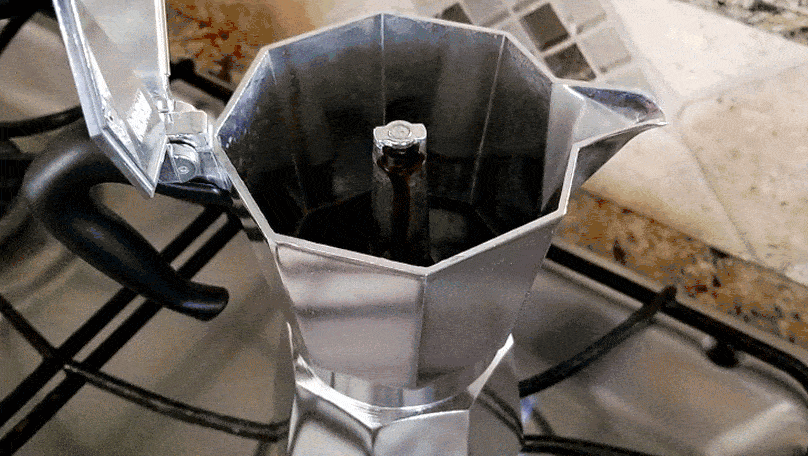
Yes, coffee is keto!
So you don’t need to worry about cutting it out of your daily diet. It’s more the different additives that you’ll need to be mindful of in your drink.
Plain, black coffee made with water is carb-free, meaning you can hypothetically drink as much as you’d like without affecting your carbohydrate count. However, we don’t advise this as too much caffeine can leave you feeling jittery and anxious, or worse – leave you feeling more tired as you have an afternoon crash.
Is Espresso Keto?
Due to the way water is forced through espresso grounds, it will have a small carb count, while coffee typically has none.
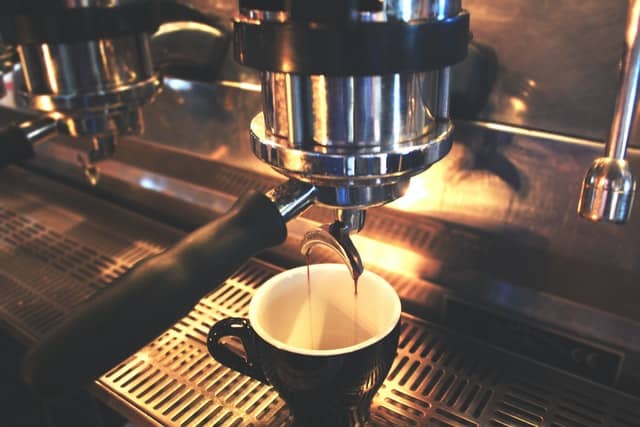
For example, coffee shops will list that an espresso shot has 2 carbohydrates. Most daily keto carb counts will range between 20 to 50 grams a day. So you’ll be safe if you have one or two espressos.
This is just something to be mindful of if you’re opting for espresso over a cup of regular coffee.
If you’re craving an espresso, remember to account for the two carbs per espresso shot. While many drinks from coffee shops often contain sugary syrups with high carb counts, a plain espresso or iced americano – made with espresso and water – are low-carb options that are more keto-friendly.
Be carful of what additives are going into your drinks!
What’s Keto Coffee?
“Keto coffee” is a drink that has a blend of fats, giving plain black coffee not only a rich flavor boost but also a serving of fat macros.
The drink was first known as “bulletproof” coffee, but a more generic version is commonly now just dubbed “keto coffee.”
Specifically, “bulletproof” coffee is made with medium-chain triglyceride (MCT) (bulletproofcoffee) oil, a dietary supplement made of a blend of fats found in coconut and palm kernel oils and dairy products.
Traditionally, it’s made with coconut oil and grass-fed butter. It can also include heavy whipping cream and vanilla, however, giving it an extra-rich flavor. The fat in it will also give you an energy boost, as, on a keto diet, your body gets energy from burning fat instead of carbs.
Keto Coffee is typically used as a meal replacement in a keto diet.
The recipe for keto coffee typical is:
- One tablespoon of butter.
- One or two tablespoons of coconut oil.
- One tablespoon of heavy whipping cream.
- One teaspoon of vanilla.
A tablespoon of butter has around 12 grams of fat, while a tablespoon of coconut oil has approximately 13 grams, and heavy whipping cream has 11 grams of carbs.
Although butter and coconut oil have no carbohydrates, heavy whipping cream has just under one gram of carbohydrates in an ounce (2 tablespoons). While a teaspoon of vanilla has no fat, it has around 0.5 grams of carbs in a teaspoon.

No matter how you make it, the coffee and ingredients are usually blended, creating a frothy, foamy texture. This makes the perfect morning drink that can give you an extra boost of energy and still takes a tiny bite off if you don’t prefer straight black coffee.
If you’re interested in making the best coffee at home, check out our article, Easy Ways to Level Up Your Home Barista Game!
How Does Caffeine Affect My Keto Diet?

Caffeine – and coffee – are often praised for having a range of health effects when considered in modest amounts. From lowering the risks of Parkinson’s and Alzheimer’s to helping you process sugar better, health experts say that a cup of joe a day can have a range of benefits.
Will caffeine affect a keto diet? One small study (Canadianscience) showed that people who were given coffee after a fast produced more ketones with a higher caffeine intake.
People who were given a 2.5-milligram dose of caffeine saw an 88% boost in ketone production, while those who were given a 5-milligram dose saw a 116% boost in ketone production.
This indicates that caffeine may help boost the production of ketones.
However, there is too much of a good thing. Caffeine acts as a diuretic – meaning it increases urine output. This can dehydrate you and cause your body to put out essential vitamins and minerals faster. As a keto diet is finely tailored with a balance of healthy fats, proteins, and carbs, it’s vital to make sure you’re getting all your essential nutrients when you cut back on eating as many carbohydrates.
To counter this effect, be sure you’re drinking enough water to stay hydrated, and be mindful that you’re getting all the essential vitamins and minerals to keep you healthy and strong. Talk to your doctor or a registered nutritionist to make sure you’re eating right to stay healthy.
For more insight on how coffee affects us, take a look at our article, How Coffee Affects the Body.
How Much Coffee Can I Drink On Keto?
If you’re drinking plain, black coffee, technically, there’s no limit to how much you can drink if you’re thinking in terms of counting carbohydrates. However, this is not advised, as too much caffeine can leave you feeling anxious, jittery, more tired, or even sick.
According to the Mayo Clinic, it’s safe to drink around 400 milligrams of caffeine a day. A cup of black coffee contains approximately 96 milligrams of caffeine, meaning you could hypothetically drink around four cups.
An ounce of espresso, meanwhile, has 64 milligrams of caffeine. Most “small” drinks contain one shot of espresso – so you could have more. A double-shot, meanwhile, will contain around 80 milligrams – meaning you could have up to five double-shots.
You will have to account for carbohydrates when drinking espresso, so just be mindful of that.
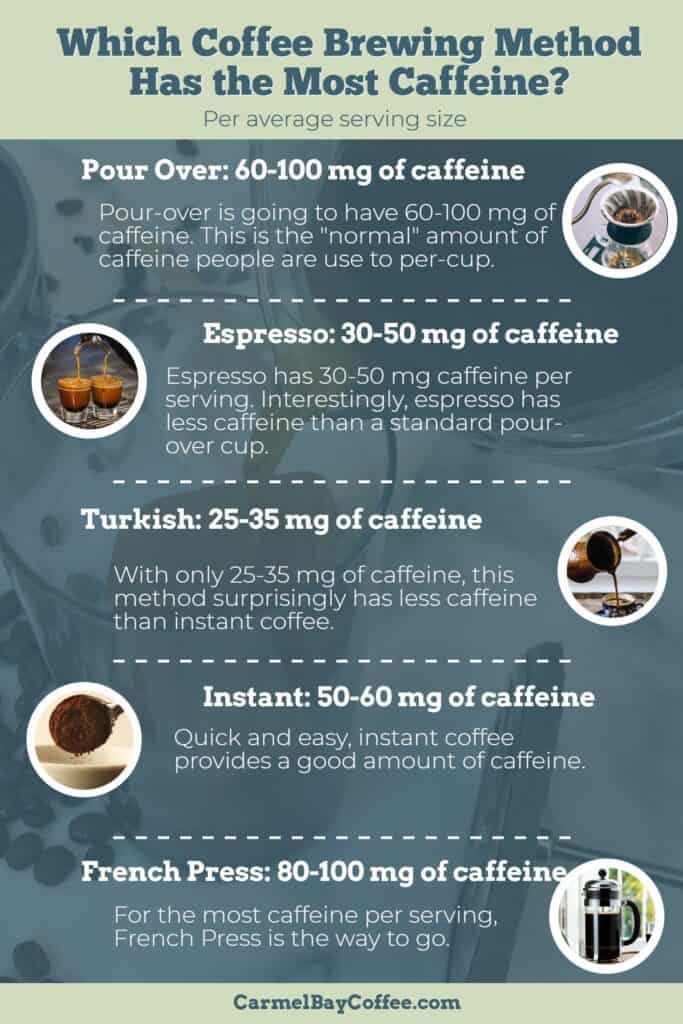
However, this will vary based on everyone’s caffeine tolerance and how it makes you feel. We recommend going easy on the caffeine until you know exactly how much you can drink without making you jittery or keeping you up all night.
Kristen Mancinelli, a registered dietitian and author of ‘The Ketogenic Diet,’ told Healthline that while black coffee is safe, if you’re explicitly drinking “keto coffee,” you should limit it to one cup a day as it can have the opposite of the desired effects.
Essentially, you can drink up to four cups of traditional black coffee on a keto diet – but for “keto coffee,” you may want to limit it to one cup.
Can I Add Alternative Milk to My Coffee?
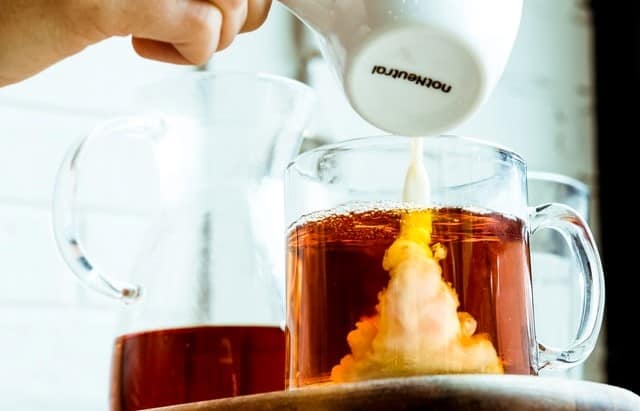
If you’re not a fan of plain black coffee and like a little added something to your cup of joe, fear not. Although traditional dairy milk contains more natural sugars and has a higher carb count, non–dairy options can be more keto-friendly.
You can definitely add milk alternatives to your coffee and still have it be keto-friendly.
You should just be mindful as many non-dairy options may say they’re “sweetened,” indicating they likely have added sugars – and therefore, higher carbs.
In small amounts, non-dairy alternatives have minimal carbs. An 8-ounce serving of unsweetened almond milk has 8.1 grams of carbs. Meaning a 1-ounce splash in your coffee will have just above 1 carb. Meanwhile, a cup of coconut milk will have around 6.4 grams of carbs or just around 0.8 grams per 1-ounce splash.
Soy milk has approximately 8 grams of carbs per 8 ounces. Or roughly 1 gram per 1-ounce splash. However, some people tend to lean away from soy milk, as there have been conflicting views on natural estrogen-like compounds found in soy.
Although almond and coconut milk are fairly keto-friendly to add to your coffee, oat milk is not as much. An 8-ounce serving has around 29 grams of carbs. Which is about 3.6 grams in a 1-ounce splash.
If you’re looking to add a non-dairy milk alternative to your coffee, almond and coconut oil may be your best bet.
Just be sure you’re choosing labels that say “original” or “unsweetened.” This will help ensure they don’t contain unwanted added sugars (carbohydrates) that will contribute to your daily macro count.
What is Keto Coffee Creamer?
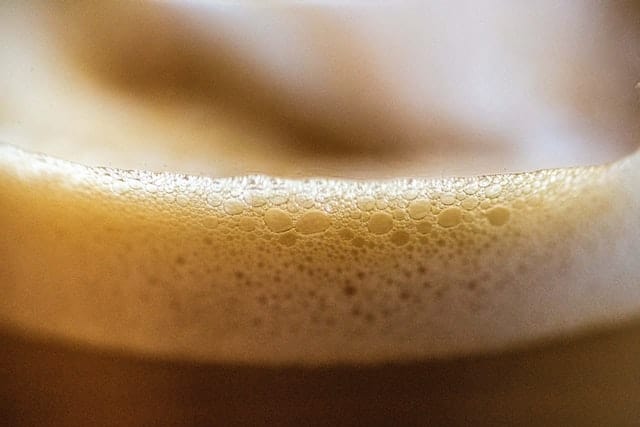
Keto coffee creamer is a low- or no-carb alternative to traditional creamers that may be sugary and have a higher carbohydrate count. Even though conventional coffee creamers may say they’re low in sugar, they can have sneaky additives that give it a high carbohydrate count and leave you feeling groggy.
Keto coffee creamers are often made with non-dairy milk alternatives – like coconut milk or almond milk – and a blend of oils.
They may also contain spices or other extracts for an added flavor boost.
You can get store-bought coffee creamers, which come either in a pourable liquid or powder form. While most of the liquid store-bought creamers contain zero carbs, some of the powdered varieties may contain a few.
This is why it’s always a good idea to check the label and be sure you’re mindful of your macros.
You can also make your own keto creamer at home – using ingredients like almond or coconut milk, low-carb sugar or alternative sweeteners, and spices or extracts. Most take just a few minutes to make and produce a big enough batch to keep in your fridge for the whole week.
However, as mentioned above, milk alternatives still contain a few carbs. So you’ll need to factor that into your diet. You can also stick to a base recipe and change the spices or extracts for various flavors that keep your morning cup of coffee flavorful and never dull.
Wrapping Up
Suppose you were worried that you’d have to eliminate coffee from your diet altogether when starting a keto diet; fear not. Traditional black coffee is totally keto-friendly, and there are great ways to boost flavor with a mix of non-dairy additives, keto creamer, butter, or oils.
As long as you’re mindful of the additives in your morning cup of joe, it’s keto-friendly – and “keto coffee” can give you an added energy boost.
Although we always recommend being mindful of your caffeine intake, coffee can provide a range of health benefits – and studies show it may even aid in ketone production.
Make sure to check out our article, This Is How Long to Wait After Waking Up to Drink Coffee.
